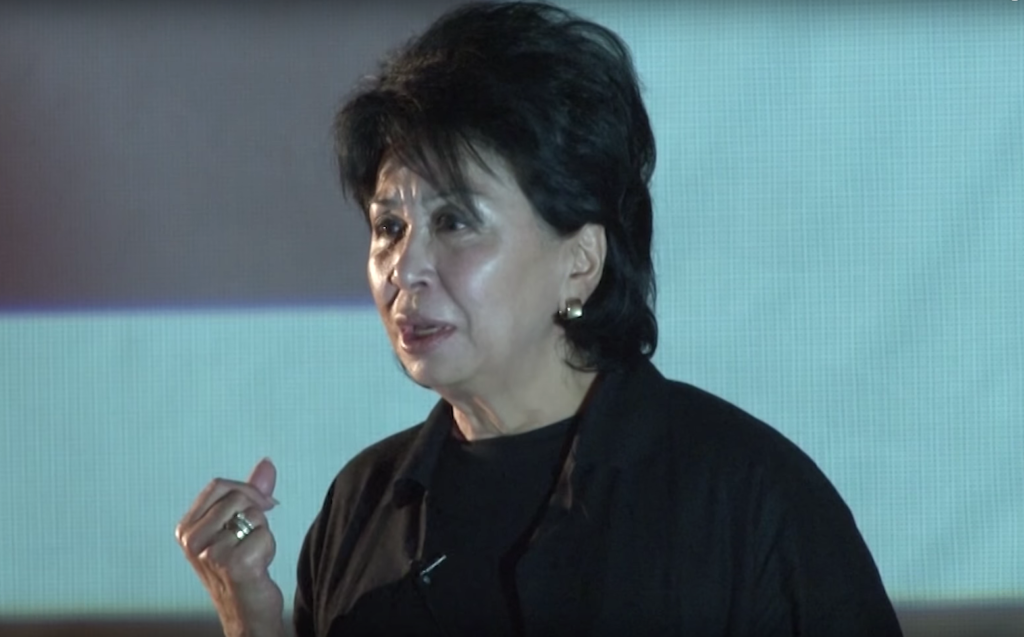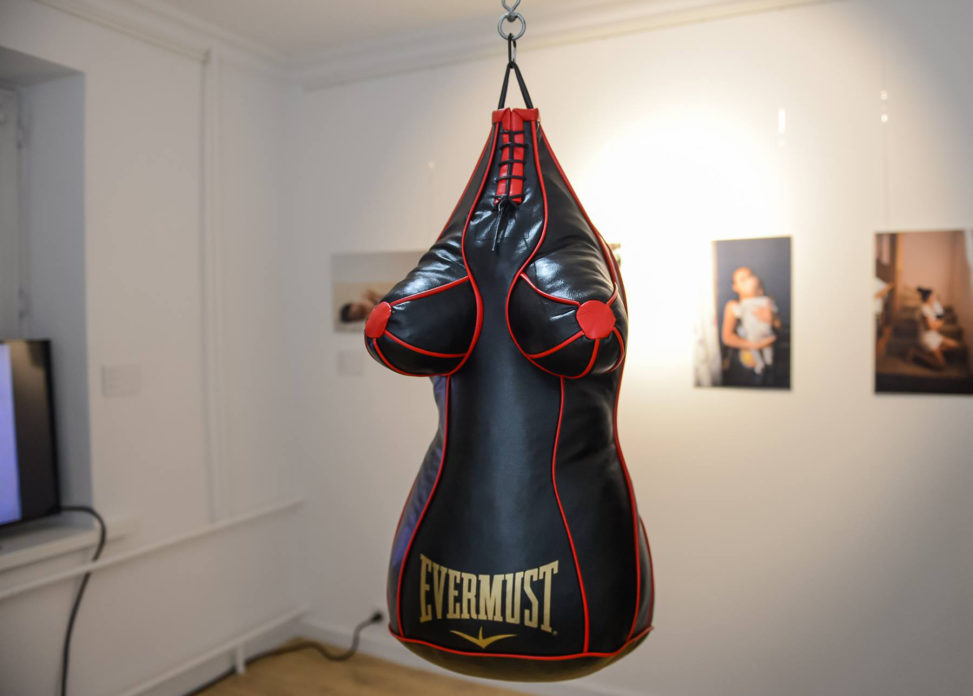Politics
Kyrgyzstan Censored a Feminist Art Show at the National Museum of Fine Arts. Now Its Director Has Resigned
The ministry of culture decried the nudity in the "scandalous" show.

The ministry of culture decried the nudity in the "scandalous" show.

Taylor Dafoe

An exhibition of feminist art at the National Museum of Fine Arts in Bishkek, Kyrgyzstan, has been censored by the government and resulted in the departure of the institution’s director.
Dubbed the “first Feminnale of contemporary art,” the show featured 56 artists from 22 countries. It opened November 25 and was slated to run for 17 days—a nod to the 17 women who died in a warehouse fire in Moscow in 2016, many of whom were Kyrgyzstani migrants.
But shortly after the opening, the Kyrgyzstan government removed several works from the exhibition, including a sculpture by Kazakh artist Zoya Falkova of a punching bag reconfigured as a female torso. Officials also forbid Danish artist Julie Savery from re-performing a work that involved disrobing in front of audiences.
The country’s minister of culture called the event a “campaign with naked women under the flag of feminism,” explaining that a special commission would be formed to review the “scandalous exhibition,” according to Kyrgyzstan news agency 24.kg. The minister also declared that Mira Dzhangaracheva, the director of the museum, had been relieved of her duties.
Dzhangaracheva took to Facebook to provide her side of the events. “They didn’t fire me,” she said, adding that she resigned after receiving death threats. She also responded with a letter calling out the government and the right-wing nationalist group Kyrk Choro, who she believes advocated for the show’s censorship. “It is a pity that it was initiated by people who never came to the museum,” she wrote. “Apparently someone wanted to distract attention and they did it.”

Zoya Falkova, Evermust (2017). Courtesy of the artist.
The former president of Kyrgyzstan, Roza Otunbayeva, was outraged by the censorship and wrote a letter castigating the government for its response.
“Stop, gentlemen!” she wrote. “You may have administrative power, but there is a public voice and female solidarity. The exhibition is dedicated to all the problems of women, and is dedicated to the fight against violence against women. What have you, the Ministry of Culture or the entire government, done to solve this problem?”
“This is violence against women,” said one of the curators of the exhibition, Altyn Kapalova. “This is pain. This is fear. Artists from all over the world express their feelings, but we are forbidden. As always they try to shut us up but it won’t work. Art is uncensored.”